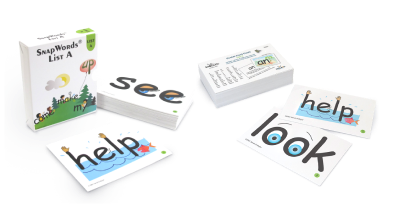
How Gratitude Helps Your Brain
As Thanksgiving approaches, we often take time to think about the things we are thankful for. I was originally going to title this blog, “How Thankfulness Helps Your Brain,” but as I was reading about thankfulness, gratefulness kept coming up. This led me to wonder about the differences between thankfulness and gratitude, as I always thought of them as one and the same. It turns out that even though they are closely related, they are not the same. According to Psychiatric Medical Care:
- Thankfulness fades
- Gratitude remains
- Thankfulness is external
- Gratitude deepens our inner connections
- Thankfulness is about the present interaction
- Gratitude improves the long-term relationship
“Although gratitude and thankfulness are closely related, gratitude provides you with a longer-lasting feeling of satisfaction and improved well-being. Practicing gratitude is proven to offer many benefits to individuals.”
Health Benefits of Gratitude
There are numerous health benefits attributed to gratitude due to its chemical effects on the brain. Positive thinking increases serotonin and dopamine while decreasing cortisol. Being in the habit of positive thinking helps you see more positives in your daily life. This does not mean that bad things will not happen or that you minimize them when they do. It means that even through the bad, you have so many things to be grateful for, and focusing on those will help you through. People who regularly practice gratitude enjoy many positive benefits including:
- Feeling more optimistic and positive
- Feelings of self-worth and compassion for others
- More physically active
- Fewer reported doctor’s visits
- Improved sleep quality
- Reduce feelings of anxiety and depression
- Better moods
- Less fatigue and inflammation
- Reduced risk of heart failure
- Improved interpersonal relationships
How to Cultivate Gratitude
You may be thinking, “This all sounds good, but you don’t know what it is like to live my life. It’s not easy to be positive.” While we all have our own unique journeys with ups and downs, it is possible to come to a place of a positive mindset, even for the most pessimistic person, due to the neuroplasticity of the brain. According to Frontiers in Psychology, “Neuroplasticity can be viewed as a general umbrella term that refers to the brain’s ability to modify, change, and adapt both structure and function throughout life and in response to experience.”
If you want to feel more grateful, start to add things to your life that will foster a positive mindset. Start with small steps that you will be able to implement and keep adding as you are able, without overwhelming yourself. Here are a few ways to start:
- Keep a gratitude journal
- Express gratitude for yourself
- Express gratitude to others
- Volunteer
- Be generous
- Meditate
“Through the power of gratitude, you can wire your brain to be optimistic and compassionate, making you feel good. The more you look, the more you can find to be grateful for. This positivity can extend to those around you, creating a virtuous cycle.” (NeuroHealth)
We are Grateful
The team here at Child1st would like to share what we are grateful for:
James

Expressing gratitude can have a profound impact on the health of your teens as well! A practice that our family enjoys is writing down three things that we are thankful for. It can be something serious, or silly, and your kids will have a blast brainstorming funny ideas! Create a simple illustration for each item! I am especially thankful for sunny days, the changing colors of the leaves as they fall to the ground, and coffee!
Ryan

I'm grateful for my dog Olive. When I get home from working at Child1st Publications, she likes to nuzzle her head into my leg to tell me that she missed me all day. She helps me stay active when I have to take her for a walk 3 times a day, and she makes for a good foot warmer.
Sometimes when Olive has been very good, I bring her into the office to help me work. As a dog she takes pride in her cardboard chewing, so she helps tear boxes for recycling.
I'm really grateful for all that you do, Olive!
Therese

I am most grateful for my new husband, my children and grandchildren, and close friends. I am grateful for the challenges and trials that have helped me grow and cultivate a positive mindset, which have brought me to a place of immense gratitude for the life I get to live!
Child1st
We are so grateful for the opportunity to help students find success and believe in their amazing abilities, and all the customers that make this possible. We are filled with gratitude for our incredible team and all the hard work, dedication, and passion that they put into their work each and every day.

Conclusion
We encourage you to take some time to think about gratitude and how you can implement some strategies that will benefit your health. Spend some time with your family, friends, students, etc., and have them write down some things that they are grateful for!
We are here for you! If you have any questions, please do not hesitate to contact us!
